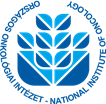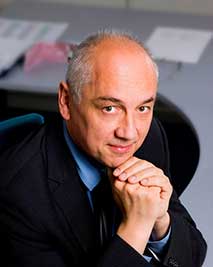
–
PESTELL GROUP: CELL CYCLE LABORATORY
HUN-REN Office for Supported Research Groups (TKI), National Institute of Oncology
Prof. Richard Pestell
- Consultant, Translational Medical Research, Experimental Therapeutics. Hungary.
- President, Pennsylvania Cancer and Regenerative Medicine Center, Institute Distinguished Professor, Baruch S Blumberg Institute, Philadelphia, PA. USA
Other appointments:
Wistar Institute Cancer Center, Member (Affiliate), Philadelphia, PA. USA
Adjunct Professor, University of Western Australia, Crawley, WA., Australia
Research focus
Our mission is to tackle a critical challenge in oncology: the pervasive issue of drug resistance in cancer. Our research group is dedicated to understanding the molecular mechanisms by which cancer cells develop resistance, including resistance to immune checkpoint inhibitor therapy. With this understanding, we aim to engineer and implement cutting-edge molecular strategies that can bypass or reverse therapeutic resistance. Our ultimate goal is to equip clinicians with new and effective treatment options, ensuring that patients receive the most beneficial care possible when current medications fall short.
You can also find us on:
https://en.wikipedia.org/wiki/Richard_Pestell
https://www.linkedin.com/in/richard-pestell-aa869352/
https://www.linkedin.com/in/peter-tompa-181a461b1/
We work closely with our collaborators at:
- The Barch S Blumberg Institute, Pennsylvania, USA
- Pennsylvania Cancer and Regenerative Medicine Center, USA
- UC Davis in spatial genomics https://health.ucdavis.edu/cancer/team/43412/kenneth-iczkowski-pathology-pathology—surgical-pathology—cardiovascular-pathology—transplant-sacramento
- UC Santa Barbara, in X-ray crystallography
https://rubinlab.sites.ucsc.edu/
- University of Vienna, in NMR
https://www.maxperutzlabs.ac.at/research/research-groups/konrat
- University of Zurich, in cryo-EM
https://www.bioc.uzh.ch/en/research/research-groups/medalia.html
RESEARCH
Ongoing research projects:
Non-canonical cyclin functions. The role of cyclins in cyclin-dependent kinase inhibitor (CKI)-resistant cancers is approached by assessing the non-canonical (non-cell cycle-related) oncogenic functions. These non-canonical functions are realized from transactivation by cyclins to generate an oncogene-induced secretome (OIS), which acts by reprogramming the tumor microenvironment. The significant cellular effects of OIS are to promote cancer stem cell formation, drive chromosomal instability (CIN), and reprogram stromal immune cells to a tumor-promoting state.
Cancer stem cells. We are defining novel mechanisms governing the molecular links between mitophagy, autophagy, and the regulation of cell division symmetry in stem cell expansion. Our premise is that symmetric cell division dictates stem cell expansion, and that cancer stem cells are responsible for therapy resistance. To explore this pathobiological inference, we are using novel inducible deletion mouse models to study the roles of key pathways involving cyclins, NFKB, and Akt1.
Cell fate determination. We are exploring cell fate determination and its connection to tumorigenesis, specifically through the lens of Dachshund (DACH1) transgenic mice. Dachshund serves as a master regulator coordinating an array of genes governing normal organismal development. Loss of DACH1 expression through gene deletion of gene silencing through methylation during the process of tumorigenesis results in the loss of tissue organisation, tumor heterogeneity, and metastasis. Dach governs both gene transcription and DNA repair. Given that Dachshund is frequently deleted alongside BRCA2, and its loss can make tumors resistant to PARP inhibitors, our goal is to establish Dachshund’s utility as a prognostic biomarker for cancer treatment.
Additional efforts are developing therapies for chemotherapy cardioprotection. Our recent findings identified therapies that provide profound cardioprotection to chemotherapy treatments. We are defining the mechanisms and translating these findings to applications in the clinic.
RESOURCES, FUNDING
The research in the Pestell lab is implemented with the support of the National Research, Development and Innovation Fund of the Ministry of Culture and Innovation under the RGH_24 (RGH 151464) Grant Agreement with the National Research, Development and Innovation Office, Hungary (2025-29).
PUBLICATIONS
Select publications of the team:
Jiao X, Di Sante G, Casimiro MC, Tantos A, Ashton AW, Li Z, Quach Y, Bhargava D, Di Rocco A, Pupo C, Crosariol M, Lazar T, Tompa P, Wang C, Yu Z, Zhang Z, Aldaaysi K, Vadlamudi R, Mann M, Skordalakes E, Kossenkov A, Du Y, Pestell RG. (2024) A cyclin D1 intrinsically disordered domain accesses modified histone motifs to govern gene transcription.
Oncogenesis. 13: 4. doi: 10.1038/s41389-023-00502-1 (PMID: 38191593).
Hamid R, Alaziz M, Mahal AS, Ashton AW, Halama N, Jaeger D, Jiao X, Pestell RG. (2023) The Role and Therapeutic Targeting of CCR5 in Breast Cancer.
Cells. 12: 2237. doi: 10.3390/cells12182237 (PMID: 37759462).
Chen K, Jiao X, Di Rocco A, Shen D, Xu S, Ertel A, Yu Z, Di Sante G, Wang M, Li Z, Pestell TG, Casimiro MC, Skordalakes E, Achilefu S, Pestell RG. (2023) Endogenous Cyclin D1 Promotes the Rate of Onset and Magnitude of Mitogenic Signaling via Akt1 Ser473 Phosphorylation.
Cell Rep. 42: 112595. doi: 10.1016/j.celrep.2023.112595 (PMID: 37224013).
Most recent from the lab:
Tian L, Jiao X, Wang C, Li D, Ertel A, Achinger-Kawecka J, Addya S, Soccio RE, Chen ER, Győrffy B, Di Sante G, Zhong Z, Alkhafaji H, Entcheva N, Campbell EM, McCue PA, Kossenkov AV, Pancsa R, Tompa P, Clark SJ, Pestell RG.
Oncogene. 2025 Jul 26. doi: 10.1038/s41388-025-03492-z. Online ahead of print.PMID: 40715464
Lazar T, Connor A, DeLisle CF, Burger V, Tompa P. (2025) Targeting protein disorder: the next hurdle in drug discovery.
Nat Rev Drug Discov. doi: 10.1038/s41573-025-01220-6 (PMID: 40490488)
Dobson L, Tusnády GE, Tompa P. (2025) Regularly updated benchmark sets for statistically correct evaluations of AlphaFold applications.
Brief Bioinform. 26: bbaf104. doi: 10.1093/bib/bbaf104 (PMID: 40067116).
For full publication lists, please visit:
Richard Pestell https://scholar.google.com/citations?user=6icYuFsAAAAJ&hl=en
Peter Tompa (PubMed; GoogleScholar)
Peter Nagy (PubMed; Google Scholar)
TEAM
Richard Pestell (CV) Peter Tompa (CV)

Peter Nagy (CV)
NEWS
Professor Pestell elected Honorary Member of the Hungarian Academy of Sciences
https://mta.hu/english/members-elected-to-the-hungarian-academy-of-sciences-in-2025-114411
Professor Pestell receives new funding
CONTACTS
How to find us:
Pestell lab
National Institute of Oncology
Building 7, ground floor
Ráth György u. 7-9
1122 Budapest
Hungary
tel:
email:
maps:
JOBS
The lab is actively recruiting at the postdoc (cell biology and biochemistry) and PhD level. Pls find a job description here. For inquiries, please contact Peter Tompa or Richard Pestell (in English, at:tompapeti@gmail.com; peter.tompa@oncol.hu).










